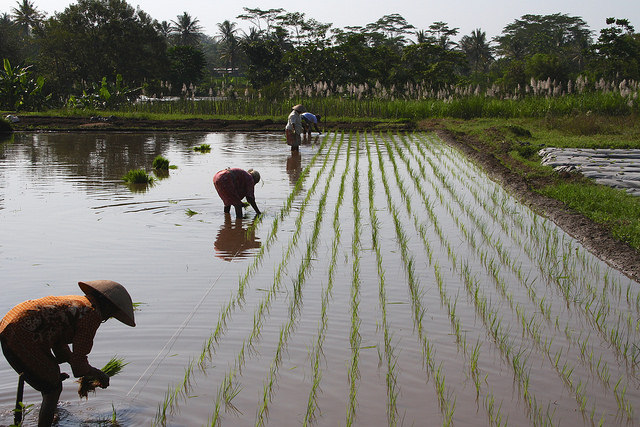What do the Great Famine in Ireland and the Bengal Famine of 1943 have in common?
In both cases, fungal diseases in critical staple crops (potato blight in Ireland and brown rust for rice in India) led to severe crop failures, which, combined with bad public policy, caused massive local shortages of food, severe price spikes, large-scale famine, death, and mass migration. Evidence suggests that in both cases, the public policy response was as much to blame, if not more so, as the original crop failure. In Ireland, poor land rights, small shareholder monoculture farming of potatoes, limited local political voice, and public policies such as the Corn Laws magnified the negative effects of the production shock. Similarly, in the Bengal famine, heavy reliance on a single crop (rice), combined with poor policies (e.g., states within India raised barriers to trading rice across the subcontinent, and local authorities responded slowly to price spikes) worsened the situation. Poor on the ground data, and even poorer understanding of the effects of price shocks on the poor and society as a whole, certainly led to some of these bad policy decisions.
Poor information during an extreme event, combined with a general sense of panic, still plagues decision-making in emergencies and can lead to myopic policy decisions. Take, for example, the 2008 rice crisis, which worsened as several countries implemented export restrictions in response to rising world prices, causing prices to surge even higher. Clearly, strides still must be made to improve public policy in response to extreme events.
Fortunately, modern agriculture has made great strides in controlling fungal diseases through improved breeding, the application of fungicides, and integrated pest management. Nevertheless, fungi continue to evolve, and in an increasingly interconnected world, new pathogens may spread faster and wider than was feasible in the past. Therefore, future crop failures cannot be ruled out. The potential consequences of a severe hypothetical outbreak are explored in a new article in the journal Philosophical Transactions of the Royal Society B, “Food system consequences of a fungal disease epidemic in a major crop.”
In this article, three scenarios of increasing severity* consider the effects of the outbreak of a new rice pathogen, based on expert opinion of plausible losses under an extreme outbreak, which lead to 80 percent yield losses. These scenarios were focused primarily in Southeast Asia, which contributes around a quarter of global production, making it the world’s largest rice exporting region. These scenarios were run in IFPRI’s IMPACT model under two alternative assumptions to test the ability of global agriculture to adjust to the shocks. The first assumed that farmers were able to respond quickly to changes in prices and adjust what they grew to respond to higher prices. The second assumed farmers would be much less able to change their production, and that they would be unable to change the area under cultivation.
The results of these simulations suggest that global trade is critical to allowing the global food system to absorb production shocks, with non-affected regions stepping in to increase exports to make up for losses elsewhere. This makes it critical to avoid following ”starve thy neighbor” policies in response to shocks to the food system, as it inhibits its ability to adjust. The interconnectedness of the global system also means that production shocks in one region may have significant effects in importing regions that rely on global supply. From a calorie consumption perspective, the most severely affected regions were in relatively poor rice importing countries outside of the affected area, such as Madagascar. Higher prices would disproportionately affect the poor in all countries, and in the face of such shocks it would be necessary to implement policies to help the most vulnerable through targeted welfare investments that supplement incomes, and coordinated market interventions that help ease pressures on raising prices.
The referenced article was co-authored by Charles Godfray, Director of the Oxford Martin Programme on the Future of Food; Daniel Mason-D’Croz, Scientist in IFPRI’s Environment and Production Technology Division; and Sherman Robinson, Senior Research Fellow in IFPRI’s Environment and Production Technology Division. This work was done in collaboration with the Oxford Martin Programme on the Future of Food. IFPRI efforts were funded through the Global Futures and Strategic Foresight (GFSF) project, which is supported by the CGIAR Research Program on Policies, Institutions, and Markets (PIM), the Bill and Melinda Gates Foundation, and the CGIAR Research Program on Climate Change, Agriculture and Food Security (CCAFS).
*1) Only in Thailand; 2) Across Southeast Asia; and 3) Across Southeast Asia and China







